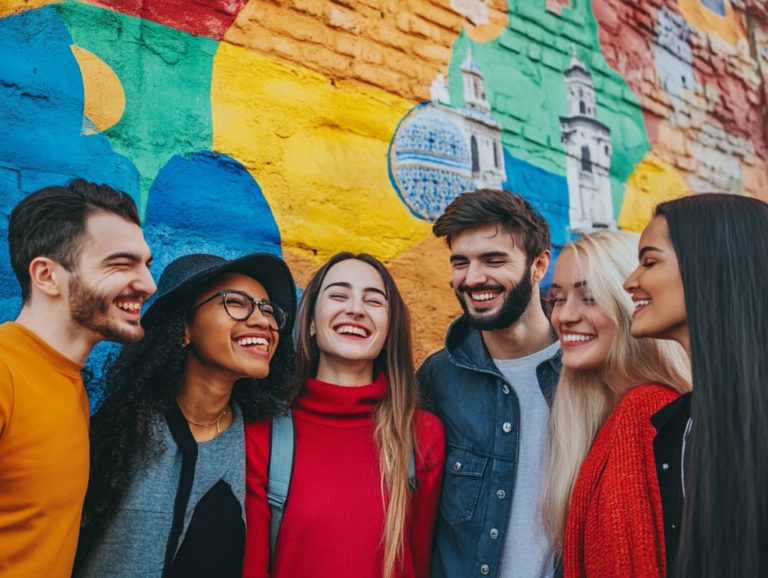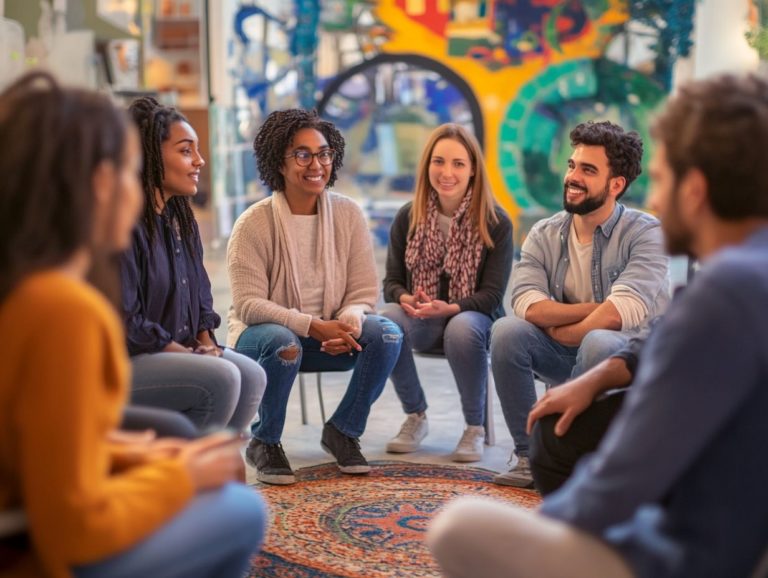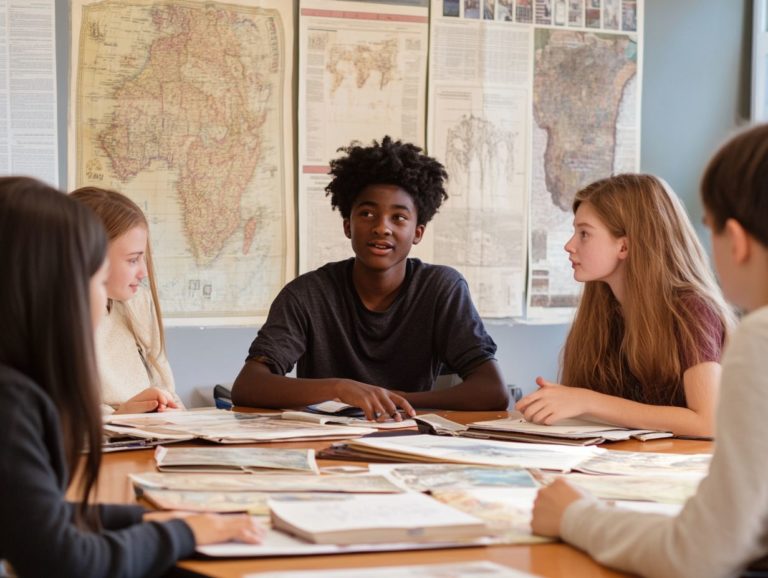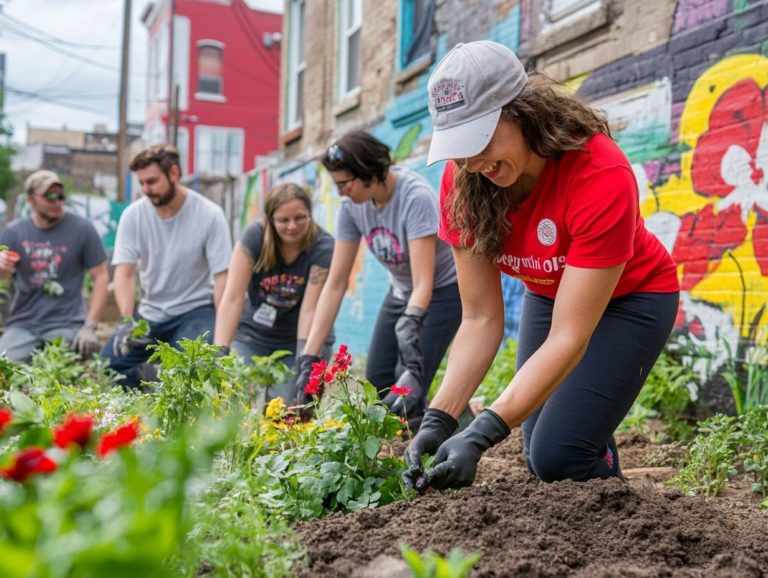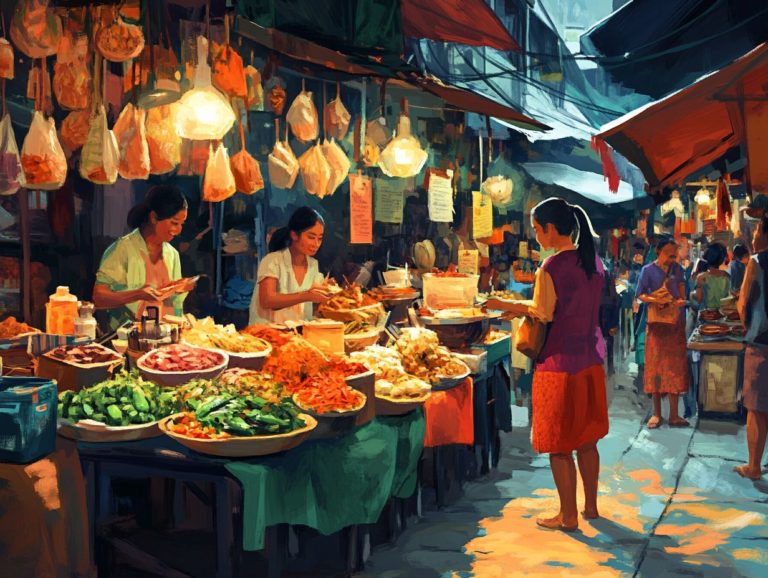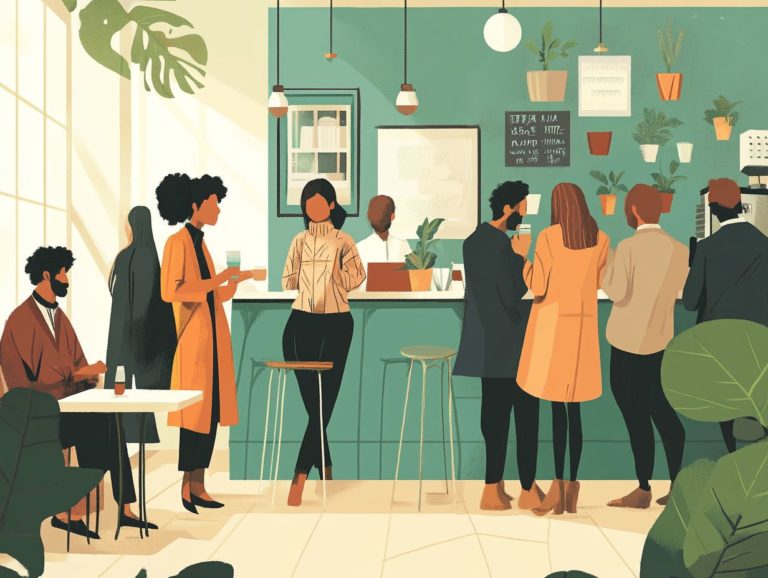The Role of Social Media in Cultural Adjustment
In today s interconnected world, social media is crucial in shaping cultural adjustment for those like you who are navigating new environments. It influences your perception of different cultures, presenting both positive and negative effects on your experiences. In this article, you ll discover the multifaceted impact of social media on cultural perception, integration, and identity.
You will find discussions on tools for cultural learning, ways to forge connections, and strategies to manage your social media use to enhance your cultural journey. Discover how to harness social media as a powerful ally in preserving your cultural traditions while seamlessly adapting to new surroundings.
Contents
- Key Takeaways:
- The Impact of Social Media on Cultural Adjustment
- Using Social Media for Learning About Different Cultures
- Social Media and Cultural Integration
- Managing Social Media Use for Cultural Adjustment
- Setting Boundaries and Avoiding Negative Influences
- The Role of Social Media in Maintaining Cultural Identity
- Preserving Cultural Traditions and Values
- Frequently Asked Questions
- What is the role of social media in cultural adjustment?
- How can social media help in cultural adjustment?
- Is social media a useful tool for cultural adjustment?
- Can social media enhance cultural sensitivity?
- What are the potential challenges of using social media for cultural adjustment?
- How can individuals use social media to overcome cultural barriers?
Key Takeaways:
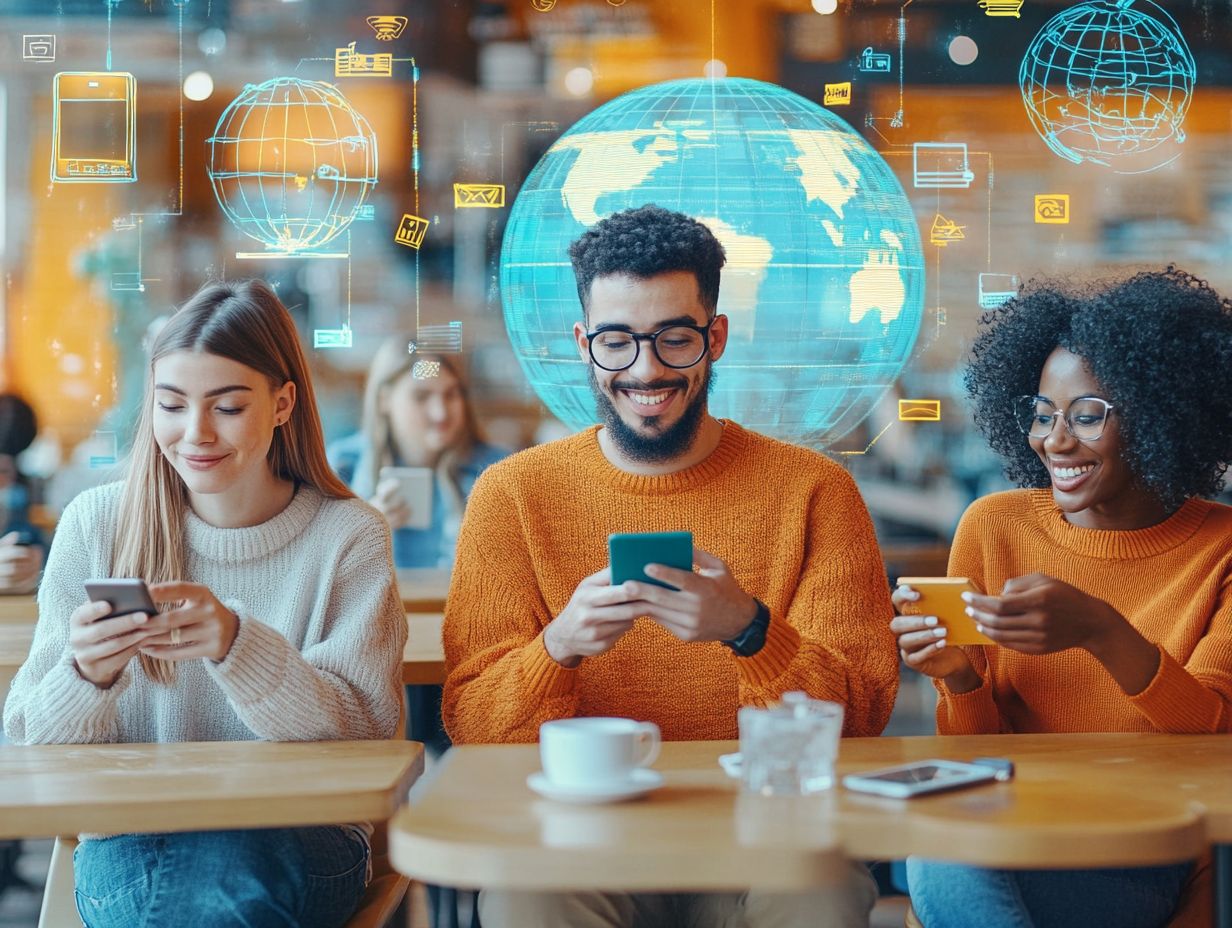
- Social media greatly influences how we perceive new cultures.
- It offers tools to learn about different cultures and connect with others.
- By using social media, individuals can effectively integrate into a new culture.
The Impact of Social Media on Cultural Adjustment
The intersection of social media and cultural adjustment serves as a vital influence on your experience as an international student navigating unfamiliar environments. Platforms such as Facebook, Instagram, and Twitter empower you to forge connections with both host nationals and fellow compatriots. This enriches your social interactions while confronting the challenges of assimilating into a dominant culture.
This intricate dynamic profoundly impacts your learning experience and overall well-being, offering a nuanced perspective on cross-cultural adaptation and the emerging monoculture, a culture that becomes dominant and overshadows others, frequently manifesting in digital spaces.
How Social Media Affects Cultural Perception
Social media acts as a powerful conduit for communication between cultures, shaping how you perceive diverse cultures. Numerous studies reveal that the manner in which information is shared and consumed on these platforms can profoundly impact the perceptions you hold about individuals from various cultural backgrounds.
This influence can lead to a deeper understanding and appreciation of different cultures, as you often stumble upon content that highlights traditions, art forms, and values that may have been previously unknown to you. However, it can also perpetuate stereotypes and misinformation, skewing beliefs and attitudes. For instance, research shows that exposure to diverse cultural content on platforms like Instagram tends to foster positive attitudes toward those cultures.
On the flip side, algorithms that prioritize sensational content can reinforce negative stereotypes. Studies indicate that users may develop increased biases when primarily engaging with narratives that confirm their existing views. Therefore, while social media offers the potential to enrich intercultural dialogue, it demands a critical approach to consumption to minimize its inherent risks.
Positive and Negative Effects
The impact of social media on cultural adaptation presents a spectrum of both positive and negative effects that shape intergroup dynamics. On one hand, social media serves as a powerful tool for sociocultural adaptation, offering international students valuable communication resources and platforms to build friendships and connect with host nationals. On the other hand, it can also foster feelings of isolation and confusion about cultures.
Take platforms like Facebook and Instagram, for example. They enable individuals to share experiences and traditions, making it easier to establish connections despite geographical barriers. Yet, these digital interactions can sometimes overshadow the richness of face-to-face communication, which is vital for authentic cultural understanding. Relying heavily on online engagement might hinder the development of real-life relationships, leaving some feeling more disconnected even when surrounded by new faces in their environment.
Striking a balance between virtual and physical interactions is essential for effective cultural adaptation, as each contributes uniquely to the overall experience. Embrace social media to deepen your cultural understanding and connect with your new community!
Using Social Media for Learning About Different Cultures
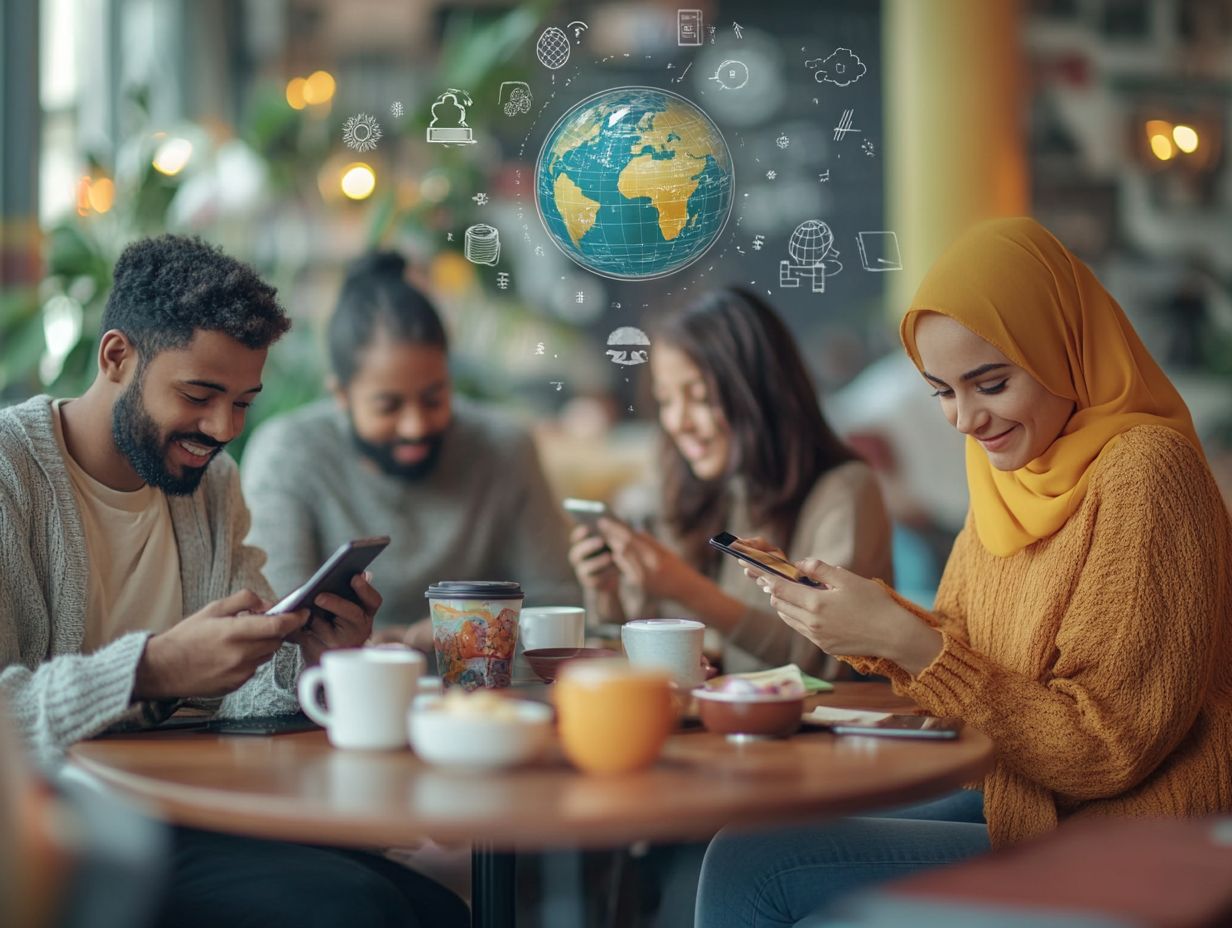
Social media is an invaluable resource for learning about different cultures. It offers a wealth of information and support that can enrich your journey of adapting to a new culture.
Platforms like LinkedIn, Facebook groups, and Instagram empower you to connect with cultural content and engage in meaningful discussions. You can seek guidance from peers and mentors.
This dynamic interaction enhances your educational experience and deepens your understanding of diverse cultural practices.
Tools and Resources for Cultural Education
Many tools and resources on social media can enhance your cultural education as an international student. You can learn about your host country in an engaging and interactive way.
Platforms like YouTube are treasure troves of cultural vlogs. Language exchange apps offer opportunities for real-time communication and learning.
Facebook and Instagram are full of community groups and pages celebrating local customs and traditions. They give you a vivid glimpse into everyday life.
Podcasts focusing on local history and culture deepen your understanding. On Twitter, hashtags spotlight current events, discussions, and insights about local languages.
Through these channels, you can engage in dialogues with locals, ask questions, and share your experiences. This creates a two-way street for cultural exchange that enriches your learning journey.
Social Media and Cultural Integration
Social media serves as a vital conduit for cultural integration. It allows international students like you to establish connections and support networks with both peers and host nationals.
Utilizing platforms such as Facebook and Instagram lets you share your experiences and engage in community events. You can cultivate interpersonal relationships that ease your transition into a new cultural landscape.
Connecting with Others and Finding Support
Connecting with others on social media is a fantastic way to find support as an international student seeking cultural integration. By engaging with local groups and fellow students online, you can establish valuable social ties.
These online interactions often blossom into friendships and networks that extend beyond the digital realm. For instance, participating in Facebook groups dedicated to international students or attending virtual meetups organized by universities can provide a space to share experiences and seek advice.
Platforms like Meetup offer opportunities to explore shared interests, whether through cultural festivals, language exchange programs, or hobby groups. Engaging with initiatives like InterNations, which promotes cross-cultural connections, enables you to forge lasting bonds while navigating your new environment.
Such connections help mitigate feelings of isolation and cultivate a supportive community that encourages your personal growth.
Managing Social Media Use for Cultural Adjustment
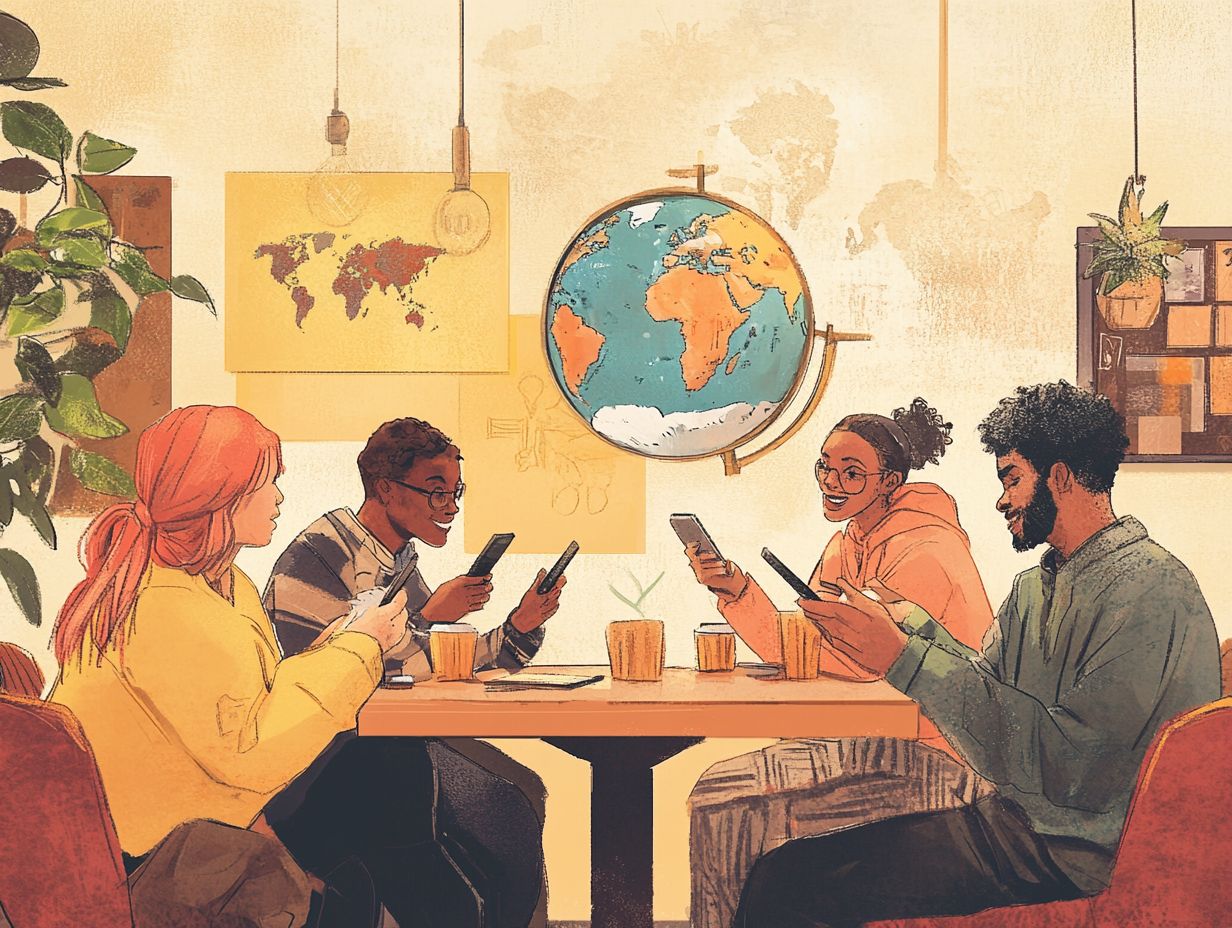
Effectively managing your social media use is essential for navigating cultural adjustment. Excessive engagement can negatively impact your psychological adaptation.
Set boundaries on your social media consumption to preserve a healthy balance between online interactions and real-world experiences. This approach supports your overall adjustment process.
Setting Boundaries and Avoiding Negative Influences
Setting boundaries on social media is crucial for avoiding negative influences that can disrupt your psychological adaptation during cultural adjustment. By consciously limiting your exposure to overwhelming or toxic content, you can create a more positive online environment that supports your adjustment journey.
Take charge of your online world! Curate your social media feeds by unfollowing accounts that bring you down. Designate specific times for checking social media to reduce the urge to mindlessly scroll. This approach ensures that your online interactions are both intentional and meaningful.
Engaging with communities that reflect your interests and values can foster connections that enhance your sense of belonging. By actively shaping your online experiences, you can maintain a healthier balance, promoting a supportive atmosphere that aids in your cultural transition.
The Role of Social Media in Maintaining Cultural Identity
Social media holds a vital place in helping students from abroad maintain their cultural identity. It offers platforms that allow them to celebrate their rich traditions and values while navigating the complexities of cultural adjustment.
By sharing your unique backgrounds and cultural practices online, you can cultivate a profound sense of pride and connection to your heritage, even in a foreign environment. This digital space becomes a tapestry of experiences, enabling you to weave your identity into the fabric of your new surroundings.
Preserving Cultural Traditions and Values
Preserving cultural traditions and values in the age of social media is essential for you as an international student aiming to maintain your cultural identity while adapting to a new environment. By leveraging social media platforms, you can share and celebrate your customs, keeping your heritage vibrant.
Consider creating dedicated groups or pages focused on cultural discussions, where you and fellow members can post recipes, stories, or videos that showcase traditional practices. Engaging in online events or webinars that highlight significant cultural festivals not only educates your peers but also strengthens your sense of belonging.
Sharing your personal narratives through blogs or vlogs can inspire fellow students to explore and appreciate the richness of diverse traditions. By interacting through likes, comments, and shares, you help build a supportive virtual community that alleviates feelings of isolation, reminding you that you are not alone in this journey.
Frequently Asked Questions
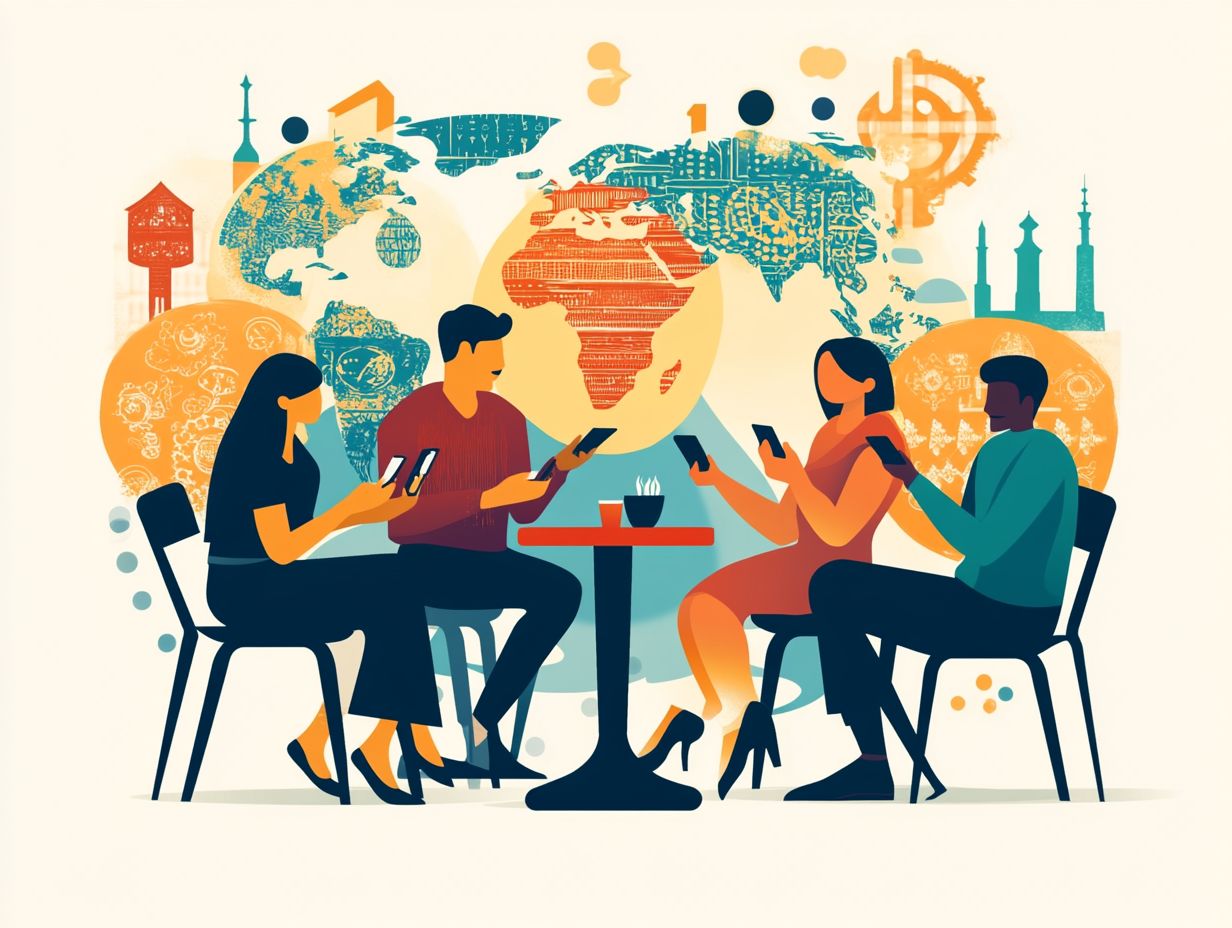
Social media plays a significant role in cultural adjustment by allowing individuals to connect with others from different cultures, share experiences, and gain insights into various cultures.
Social media can help in cultural adjustment by providing a platform for individuals to learn about different cultures, customs, and traditions through online interactions with people from diverse backgrounds.
Yes, social media can be a useful tool for cultural adjustment as it facilitates cross-cultural communication, promotes cultural understanding, and helps individuals adapt to new cultural norms.
Absolutely! Social media can enhance cultural sensitivity by exposing individuals to diverse perspectives, promoting empathy, and encouraging open-mindedness towards different cultures.
Social media can present challenges for cultural adjustment, such as the spread of misinformation and stereotypes, the pressure to conform to certain cultural norms, and the risk of cultural appropriation.
Individuals can use social media to overcome cultural barriers by actively seeking out and following accounts from diverse cultural backgrounds, engaging in respectful and open discussions, and being mindful of cultural differences when interacting online.
Ready to share your story? Join our online group today!

